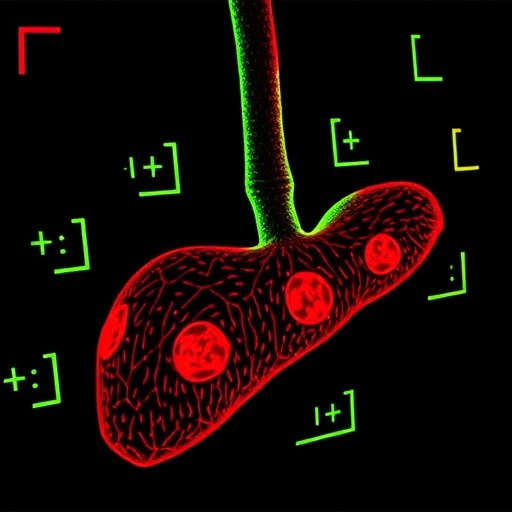
A groundbreaking study recently published in Science China Life Sciences has unveiled a compelling therapeutic avenue for liver cancer treatment through the inhibition of Aurora kinases. This pivotal research, undertaken by a consortium of scientists affiliated with prestigious institutions including Peking University and the Affiliated Suzhou Hospital of Nanjing Medical University, sheds new light on the intricate molecular pathways underpinning liver cancer progression and offers hope for a novel, differentiation-based therapeutic strategy.
Liver cancer, particularly hepatocellular carcinoma (HCC), represents a formidable clinical challenge worldwide due to its notorious genetic heterogeneity and the scarcity of effective therapeutic targets. Conventional chemotherapeutic regimens often fall short, plagued by issues such as drug resistance and systemic toxicity. Consequently, there exists an urgent need to identify molecular targets that not only hamper tumor proliferation but also restore the normal cellular phenotype, thereby improving patient prognosis.
Central to this study is the role of Aurora kinases, a family of serine/threonine kinases known for their crucial involvement in mitotic progression and chromosomal stability. Dysregulation of Aurora kinases, especially Aurora A and Aurora B, has been implicated in tumorigenesis across various cancers, making them attractive candidates for targeted inhibition. However, their precise function in liver cancer differentiation had remained largely unexplored until now.
The investigators deployed potent Aurora kinase inhibitors, notably Alisertib and ENMD-2076, to assess their capacity to influence liver cancer cell behavior. Their experimental approach combined rigorous cellular assays with comprehensive gene expression analyses, revealing that treatment with these inhibitors not only curtailed cellular proliferation but also triggered a profound phenotypic shift. Remarkably, treated liver cancer cells exhibited transcriptional upregulation of a suite of hepatic differentiation markers, indicating a reversion toward a more differentiated, less malignant state.
This differentiation phenomenon was further characterized by a concomitant downregulation of malignancy-associated markers, underscoring the dual anti-tumorigenic effects of Aurora kinase inhibition. Importantly, these phenotypic changes persisted beyond the active presence of the drugs, maintained for several days post-withdrawal, suggesting a durable reprogramming of cancer cell identity—a feature that could translate into lasting clinical benefits.
Mechanistically, the study posits that Aurora kinase inhibitors mediate their effects through a bifurcated mechanism: the direct suppression of mitotic progression impairs unchecked cell division, while the induction of differentiation pathways reinstates hepatic cellular functions lost during oncogenesis. Transcriptomic profiling indicated activation of key hepatic transcription factors and metabolic genes, which collectively drive the maturation of malignant cells toward a more benign lineage-committed phenotype.
These findings also invite a reconsideration of how targeted therapies may be designed. Rather than exclusively striving to eradicate cancer cells via cytotoxicity, fostering differentiation represents an innovative paradigm that may mitigate adverse effects and circumvent resistance. By coaxing liver cancer cells to regain functionality akin to normal hepatocytes, Aurora kinase inhibitors could restore tissue homeostasis and inhibit tumor progression in a more physiologically congruent manner.
Furthermore, the inhibitors utilized—Alisertib and ENMD-2076—have demonstrated favorable pharmacokinetic and safety profiles in prior clinical evaluations across multiple cancer types. Their efficacy in inducing differentiation in liver cancer cells opens new vistas for clinical translation, potentially enabling combination regimens that integrate differentiation therapy with existing cytotoxic or immunotherapeutic modalities to achieve synergistic effects.
The implications of this study extend beyond the immediate clinical context as well. Understanding the molecular crosstalk between cell cycle regulation and differentiation not only enriches our comprehension of liver cancer biology but also fuels the development of next-generation therapeutics aimed at restoring cellular identity. Moreover, since Aurora kinases are universally expressed and implicated in diverse malignancies, the therapeutic concepts elucidated here may hold translational relevance across a spectrum of cancers.
Researchers emphasize that while these preclinical findings are promising, rigorous clinical investigations are imperative to evaluate the safety, optimal dosing, and long-term efficacy of Aurora kinase inhibitors in liver cancer patients. Additionally, elucidating the molecular determinants of responsiveness will be critical to stratify patients who stand to benefit most from differentiation-based therapies.
In summary, this study represents a significant leap forward in liver cancer research, revealing that targeting Aurora kinases extends beyond mere blockade of proliferation to encompass the induction of cellular differentiation. This dual action can potentially reshape therapeutic strategies aimed at this formidable malignancy, offering a beacon of hope for improved patient outcomes in the near future.
Subject of Research: Liver cancer treatment via Aurora kinase inhibition and induction of cellular differentiation.
Article Title: [Not Provided]
News Publication Date: [Not Provided]
Web References:
http://dx.doi.org/10.1007/s11427-023-2795-2
References:
[Study published in Science China Life Sciences, DOI: 10.1007/s11427-023-2795-2]
Image Credits: [Not Provided]
Keywords: Aurora kinases, liver cancer, hepatocellular carcinoma, cellular differentiation, Alisertib, ENMD-2076, targeted therapy, cancer biology, tumor proliferation, hepatic gene expression
Tags: Aurora kinase inhibitionAurora kinases in cancer.cell differentiation strategiesdrug resistance in cancer therapygenetic heterogeneity in liver cancerhepatocellular carcinoma researchliver cancer treatmentmolecular pathways in cancerPeking University researchsystemic toxicity in chemotherapytargeted therapy for liver cancertumor growth suppression





